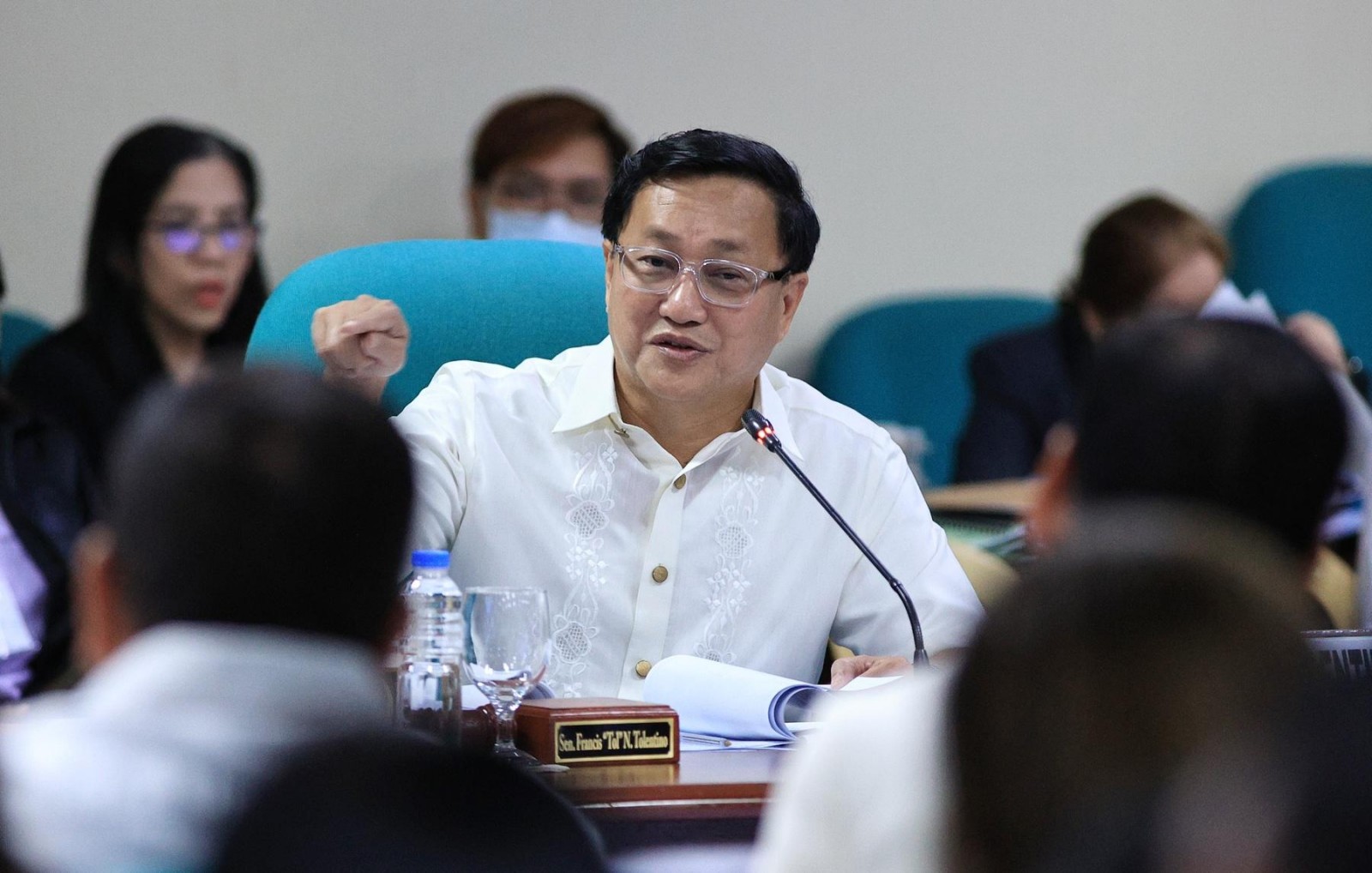Tolentino expresses concern anew over the destruction of corals in WPS
By Dhel Nazario
Sen. Francis Tolentino expressed concern anew regarding the destruction of coral reefs over the West Philippine Sea (WPS), speaking with experts from the Department of Science Technology (DOST).

Tolentino was curious regarding the contribution of corals in mitigating large tsunami waves and referred his questions to DOST-Philipine Institute of Volcanology and Seismology (Phivolcs) OIC Director Teresito Bacolcol during the deliberations of DOST's budget for 2024.
Bacolcol explained that while corals may function that way, it's not very significant and its effect is only minimal.
Referring to the recently discovered destroyed corals in the WPS, Tolentino was concerned about the risk it poses to the coastal communities there.
"Coral reefs act as natural barriers, protecting coastlines from storms, wave erosion, and tsunamis. They help dissipate the energy of waves, reducing the impact on coastal communities and infrastructure,” said Tolentino, who chairs the Senate Maritime and Admiralty Zones panel.
“With the loss of reefs, coastal areas will become more susceptible to these natural hazards, putting coastal communities at greater risk. The destruction of the corals can result in stronger waves,” he added.
Bacolcol stated that mangroves have more impact on wave suppression.
DOST Secretary Renato Solidum Jr. said that if the coral reefs being talked about have the same width as the ones in the Great Barrier Reef in Australia, then it can have a very big impact.

Yet Solidum agreed that coastal erosion can be caused by the destruction of corals. He used as an example Boracay which he said was a disaster in the making because the corals were being destroyed by algae.
"Corals actually prevent the wave erosion and corals supply the sand to Boracay. When there is so much pollution, the corals die and there have been more than 20-meter erosion in Boracay because of the destruction of corals," he said.
Tolentino approved the DOST's budget amounting to P25.9 billion for 2024 and endorsed it to the plenary.
Among the other salient discussion points in the said briefing are the strengthening of DOST’s public communications and the integration of DOST with marine studies especially amid the coral harvesting in the WPS.
Further, Tolentino urged DOST to conduct stronger research on agriculture and food security, including the development of tamban fish hatcheries, the African Swine Fever (ASF) vaccine, and nutritious meals for marginalized Filipinos.